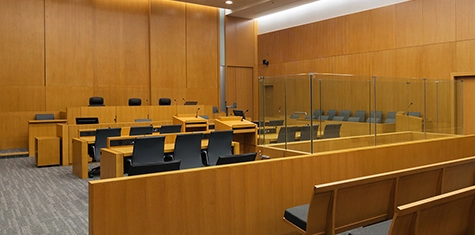Co-authored with Ellen Stojak, Summer Associate
The 2024 Minnesota legislative session brought notable changes to environmental laws in Minnesota. These changes include, but are not limited to: increasing, clarifying and establishing the Minnesota Pollution Control Agency’s (MPCA) enforcement powers, ability to recover costs from negotiated settlement agreements, penalty caps and compliance protocols for air toxics monitoring, establishing an extended producer responsibility (EPR) program for packaging and paper products, only the fifth such state program in the country, creating a waste-management hierarchy for food waste and directing MPCA to prepare reports setting forth recommendations to the legislature on topics including climate change adaptation and PFAS removal.
These developments, which were contained in the Environment and Natural Resources Budget and Policy bill, are discussed in greater detail below.
- Increased MPCA Enforcement Powers
- Cost Recovery for Oversight of Negotiated Settlement Agreements
- Increased Civil and Administrative Penalties
- Compliance Protocols for Monitoring Actual Air Emissions
- Packaging Waste and Cost Reduction Act
- Other Notable New Environmental Legislation
Increased MPCA Enforcement Powers
First, the legislature clarified and broadened MPCA’s ability to wield emergency powers under Minn. Stat. §116.11. 2024 Minn. Laws ch. 116, art. 2, sec.18. Section 116.11 allows MPCA to ask the attorney general to seek a temporary restraining order in district court to abate pollution that presents an “imminent and substantial danger” to public health and welfare. The legislature has now added a new subdivision 2 to section 116.11 that allows MPCA to directly address certain “other acts of concern” through administrative action. The new law defines “other act of concern” to include:
- falsification of records,
- history of noncompliance with schedules of compliance or terms of a stipulation agreement,
- chronic or substantial permit violations, or
- operating with or without a permit where there is evidence of danger to the health or welfare of people of the state or evidence of environmental harm.
When an “other act of concern” is implicated, the statute allows MPCA to investigate and take any of the following actions:
- suspend or revoke a permit,
- issue an order to cease operations,
- require financial assurances,
- reopen and modify a permit to require additional terms,
- require additional agency oversight, or
- pursue other actions deemed necessary to abate pollution and protect human health.
Importantly, the MPCA may take these actions “without notice and without a hearing.”
The legislature also clarified MPCA’s power to issue injunctions under Minn. Stat. § 115.071, subd. 4. A new sentence added to this subdivision clarifies that MPCA can order a party to immediately cease activities until the MPCA has “reasonable assurance that the activities will not violate” environmental requirements. 2024 Minn. Law ch. 116, art. 2, sec. 4. Finally, the legislature specified that if a party to a stipulation agreement asserts a good cause or force majeure claim for an extension of time to comply with a stipulated term, the commissioner may deny the extension if the assertion is “based solely on increased cost of compliance.” sec. 5 (adding a new subdivision 8 to Minn. Stat. § 115.071).
Cost Recovery for Oversight of Negotiated Settlement Agreements
With 2024 Minn. Laws ch. 116, art. 2, secs. 1 and 14, the legislature amended Minn. Stat. §§ 115.03, subd. 1 and 116.07, subd. 9, respectively, to give MPCA authority to recover the costs of overseeing implementation of certain stipulation agreements and other negotiated settlements. Specifically, under these new laws, parties who enter into a negotiated agreement to settle an enforcement matter may be required to reimburse the agency for oversight costs if the costs exceed $25,000. The legislature specified a list of potential costs that the agency could recover for, including inspections, sampling, monitoring, modeling, risk assessment, permit writing, engineering review and economic analysis and review. The new laws require MPCA to provide an estimate of anticipated oversight costs in the negotiated agreement and provide periodic updates to the regulated party. Notably, MPCA may not recover legal and litigation costs under the new provisions. These amendments have the potential to increase the costs of complex negotiated settlement agreements for regulated parties.
Increased Civil and Administrative Penalties
The legislature has also increased the monetary penalties that a court, agency or county board may apply in certain circumstances. First, with 2024 Minn. Laws ch. 116, art. 2, sec. 3, the legislature increased the amount of civil penalties that may be sought under Minn. Stat. § 115.071, subd. 3 for violations of most Minnesota environmental laws, permits and related requirements from $10,000 to $15,000 per day of violation, and from $25,000 to $30,000 per day of violation if the violation relates to hazardous waste.
Second, with 2024 Minn. Laws ch. 116, art. 2, sec. 16, the legislature increased the maximum penalty MPCA or a county board may impose in an administrative penalty under Minn. Stat. § 116.072, subd. 2 from $20,000 to $25,000. And third, with the same law, section 17, the legislature amended 116.072, subd. 5, to mandate stricter penalties for repeat violators in administrative penalty orders. Specifically, the amendment requires that if a repeat violation occurs within 36 months of the previous violation, the penalty “must be 10% higher than the penalty imposed for the last violation” unless it would exceed the statutory cap (now $25,000).
Compliance Protocols for Monitoring Actual Air Emissions
With 2024 Minn. Laws ch.116, art. 2 sec.13, the legislature mandated that MPCA develop a “compliance protocol” specifying methods the agency requires a facility to employ to measure actual emissions levels of air toxics emitted by the facility, and the frequency with which the facility must employ each method. The new law, to be codified as Minn. Stat. § 116.07, subd. 4n, allows MPCA to require a compliance protocol in a state individual air quality permit issued in response to an enforcement action. Methods that may be required by MPCA to monitor actual air toxic emissions from a facility include: continuous emission monitoring systems (CEMS), performance tests, ambient monitoring near the facility, portable monitoring units that have been calibrated with performance tests or CEMS or any other method that the commissioner determines is “accurate and technically and physically feasible.”
Packaging Waste and Cost Reduction Act
Article 5 of 2024 Minn. Laws ch.116 establishes a new Packaging Waste and Cost Reduction Act, making Minnesota the fifth U.S. state to establish an extended producer responsibility (EPR) program for packaging. The act, to be codified as Minn. Stat. §§ 115A.144 to 115A.1463, extends producers’ financial and managerial responsibility for their product packaging and certain paper products in Minnesota beyond the manufacturing stage, both upstream to product design and downstream to post-consumer use, recycling or disposal.
Under the new EPR program, producers of packaging sold in Minnesota are required to create, and by July 1, 2025, be a member of, a registered producer responsibility organization (PRO). PRO members will be assessed fees based on the quantity and types of packaging they sell. After January 1, 2029, producers may not introduce covered materials unless the producer enters into a written agreement with a PRO to operate under an approved stewardship plan. Stewardship plans must, among other things, provide a methodology for reimbursing the costs of recycling and managing the covered materials by at least 50% by February 1, 2029, and at least 90% by February 1, 2031.
The act also incentivizes producers to redesign their packaging to minimize waste by, e.g., requiring PRO stewardship plans to include technical assistance for producers to “make changes in product design that reduce the environmental impact of covered materials or that increase the recoverability or marketability of covered materials for reuse, recycling or composting.”
Other Notable New Environmental Legislation
In addition to the laws described above, the legislature directed MPCA to prepare several reports containing legislative recommendations on climate change, PFAS removal and products containing lead, cadmium and PFAS. 2024 Minn. Laws. ch.116, art. 2, sec. 33; sec.29; and sec. 31. The legislature specified that the PFAS report should include strategies or fee mechanisms that would “require companies that release [PFAS] to pay for the cost of providing safe drinking water” to people who have water contaminated with PFAS. The legislature has also asked for recommendations on fee mechanisms for requiring companies that manufacture, use or release PFAS to “pay for the cost of treating and disposing of PFAS from municipal wastewater.” Additionally, the legislature has required a report on climate change adaptation and resilience that will estimate costs related to climate change hazards, how these hazards are experienced by different demographics and the costs associated with mitigation.
Finally, the legislature amended Minnesota’s declaration of policy and purposes regarding waste management, Minn. Stat. §115A.02 (2023), by adding a new subsection (c) that establishes a hierarchy of waste management practices specifically for food waste. 2024 Minn. Laws ch.116, art. 2, sec. 7. The new food-waste management practices, in order of preference, are:
- reducing the amount generated at the source;
- upcycling or donating for human consumption;
- diversion for animal consumption or leaving crops unharvested;
- composting or anaerobic digestion when the biogas and digestate are not disposed of but are used as a salable product; and
- either using anaerobic digestion, when the biogas is used as a salable product but the digestate is disposed of, or land application of food waste.





